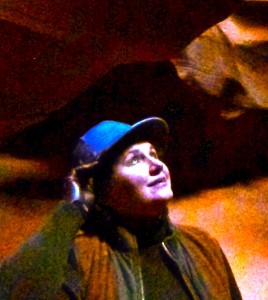The Archaeology of Writing
A holiday provides healthy distance about daily life. This Christmas, time from the computer has enabled me to rethink my blog as we prepare for the April release of When Camels Fly.
enabled me to rethink my blog as we prepare for the April release of When Camels Fly.
One epiphany is that writing is like the archaeology my middle-aged heroine embraces. At first glance, the fields appear dissimilar. One is dusty and dirty; the other, glitzy and glamorous. But they have common ground if you know where to look.
Aside from the education required by both professions, projects in each start with a sense of something important. Could that mound be a burial tel? Could these pottery shards represent an ancient culture? Could characters in my mind evolve into a story? Could they interact to share the human condition, provide encouragement, better society? If the answers are “yes,” then can I do the job?
Both professions are slow work. Archaeological sites and objects must be treated with great care. Backbreaking attention ensures discoveries aren’t disturbed in any way that would contaminate them or their context. In writing, language, the gift of a story, and most importantly, readers, demand respect. The human mind is a remarkable instrument, and writer and reader engage in a slow dance of concept, emotion, and trust.
Both professions are frustrating. Howard Carter didn’t have an easy time securing dig permits in the Valley of the Kings. Tutankhamen played hide-and-seek before Carter finally peeped at the boy king’s treasures. Stephen King was rejected thirty times before a publisher offered him a contract. Jack London, author of Call of the Wild (among other classics) received more than six hundred rejections before being published.
Both professions have methods. In archaeology, professionals work from the known to the unknown. From top to bottom. Research, excavate, and record. In writing, authors rely on life experience and throw themselves into the unknown of a blank screen. Work from beginning to end (usually). Research, experience, and record.
Both professions can be disappointing. On rare occasions, wealthy patrons or institutions underwrite digs. More often, archaeologists work against the ticking clock of a developer waiting to excavate a site that might hold something of historic value. And on rare occasions (less than .05% of the time), writers are signed to traditional publishing contracts. More often these days, though, writers either give up or self-publish.
 Both professions benefit from the thrill of the chase. I’ve stood on an Israeli tel in 118-degree weather. It’s thrilling. And I’ve been elated that my writing has received great interest from acquisitions editors in publishing houses whose names you’d recognize. (My literary agent has been a busy woman.) But just as a good archaeologist studies facts while not ignoring instinct and then determines when and how to begin, I think a good writer (and businesswoman) knows when to play the odds.
Both professions benefit from the thrill of the chase. I’ve stood on an Israeli tel in 118-degree weather. It’s thrilling. And I’ve been elated that my writing has received great interest from acquisitions editors in publishing houses whose names you’d recognize. (My literary agent has been a busy woman.) But just as a good archaeologist studies facts while not ignoring instinct and then determines when and how to begin, I think a good writer (and businesswoman) knows when to play the odds.
If someone would hand me a pick ax and my sunscreen, I’ll get get busy.